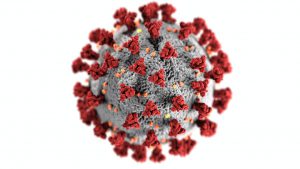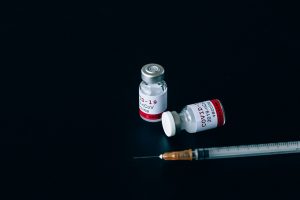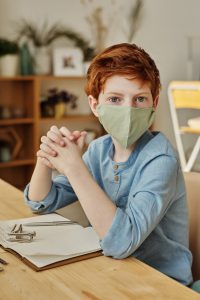On June 18, 2022 the CDC accepted the Advisory Committee on Immunization Practices’ (ACIP) recommendation that children ages 6 months and older should be vaccinated against Covid 19. Before that, children under 5 were not eligible to receive the vaccine. A lot of parents can now breathe a sigh of relief knowing a vaccine is available for their children. Let’s take a look at the newly approved options.

2 Options
The CDC and the FDA approved both Moderna’s two-part vaccine for children ages 6 months – 5 years and three-dose vaccine for children ages 6 months – 4 years. Moderna’s two-part vaccine involves a 25 microgram dose in each part.and are given 4 weeks apart. For Pfizer’s three-dose vaccine, each dose is 3 micrograms. The first 2 shots are given 3 weeks apart, and the third is given at least 2 months after the second so the series is a longer process. If a pharmacy or pediatrician has both vaccines available and a child falls within the range for both Pfizer and Moderna, parents can choose which one they’d like for their child.
Differences and Similarities

As mentioned above, Pfizer’s series has 3 doses as opposed to Moderna’s 2, which makes it longer to complete and has 1 additional shot. If you’ve dealt with small children, less visits to get a poke may be an incentive but if it’s efficacy you’re after, Pfizer’s 3 dose series provided a higher percentage at 80% in children ages 6 months to 4 years. Moderna’s efficacy was 37% in children ages 2 to 5 and 51% in children ages 6 to 23 months. As far as side effects, fever and fatigue were less common in Pfizer’s vaccine. In both, side effects were mild and no cases of myocarditis were reported. Myocarditis is inflammation of the heart muscle and is a known risk of both Pfizer and Moderna vaccines in adults and adolescents but particularly for young men. The bottom line is that while there are some differences, they both lower the risk of kids getting seriously ill from Covid-19 and prevent needing to be hospitalized.
Why Vaccinate Children Under 5?

Since the pandemic began, more than 2 million children under 5 have been infected with Covid-19 and more than 400 young children have died from it. Much to everyone’s dismay it’s not going away anytime soon. Vaccinating helps prevent children from getting Covid-19 and can help families get back to a more normal life. Talk to your pediatrician and decide what vaccine is right for your child today. While Covid-19 vaccinations are available for everyone 6 months and older at no cost, it is still important to be sure you have a health insurance plan that suits you and your family’s needs. If you’re shopping for a plan, your best bet is to speak to a licensed EZ agent. Our agents work with the top-rated insurance companies in the nation, so we can compare plans in minutes. We will not only find a plan that has all the benefits you’re looking for, but we will also make sure the plan fits your budget. To get free, no obligation, instant quotes, simply enter your zip code in the bar above, or to speak to a local agent, call 888-350-1890.











